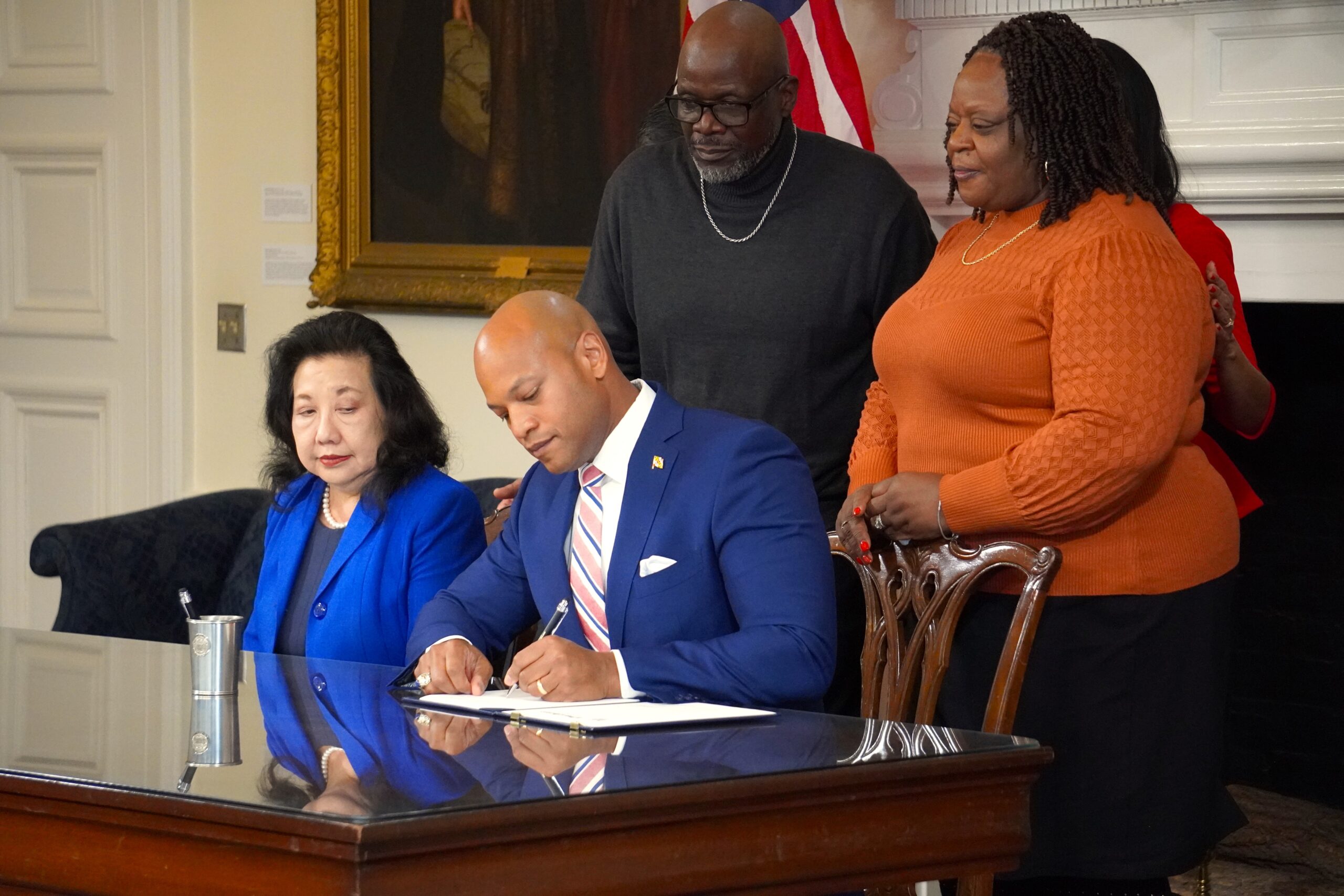Moore issues executive order to ‘broaden’ state efforts to combat drug overdoses

Gov. Wes Moore announced an executive order to “broaden” the state’s efforts to combat the the drug overdose crisis through reorganizing and expanding a state entity previously known as the Opioid Operational Command Center.
Moore (D) said the order will “help broaden state and government’s approach to tackling the overdose crisis,” to reflect the ever-changing nature of the opioid crisis and overdoses in general.
The executive order renames the state opioid response advisory council to the “Office for Overdose Response,” and places the council under the purview of the Maryland Department of Health, instead of operating separately.
At a press conference in Annapolis on Thursday announcing his action, speakers included Lt. Gov. Aruna Miller, Special Secretary of Opioid Response Emily Keller, Deputy Secretary for Behavioral Health Alyssa Lord and Dr. Rahul Gupta, Director of the National Drug Control Policy from the Biden Administration.
Nearly every speaker said that they had a personal connection to the overdose crisis.
Keller talked about the death of her best friend, Ashley, from an opioid overdose in 2015, and Miller shared that she had a brother-in-law who passed away in 2017 from an overdose.

Dr. Rahul Gupta, the Biden Administration’s Director of National Drug Control Policy, joins Gov. Wes Moore (D) and Lt. Gov. Aruna Miller (D) for a press conference on combating drug overdoses in the Maryland. Photo by Danielle J. Brown.
Moore mentioned his friend David Lunn Jr., who passed away in 2019 and is a large inspiration for Moore’s efforts to improve the overdose crisis in Maryland.
“Overdose victims are more than statistics. They are people with hopes and dreams and aspirations and achievements,” Moore said.
It was also personal to Dr. Gupta.
“I went to Montgomery County Public Schools, and it saddens me when I see and hear about overdoses in my high school,” Gupta said. He said that kids will order pills online thinking that they might be receiving Xanax or Adderall, but those pills are often be laced with fentanyl.
“It turns out to be six out of ten of these fake pills have lethal doses of fentanyl…odds worse than playing Russian roulette with your life,” Gupta said.
Deputy Secretary Lord said that between July 2022 and July 2023, there were 2,583 fatal overdoses in Maryland, and fentanyl was involved in about 81% of deaths.
In addition to renaming the agency that handles the opioid crisis, Moore’s executive order also expands the size of the advisory council from seven to 18 members.
“Because when you have more people at the table, when you have more insights and more perspectives, you will come up with better solutions,” Moore said.
However, the health department and other agencies are struggling to fill necessary staff positions. The Moore administration has been working to reduce the number of vacancies at state agencies, but those efforts, so far, have fallen short.
Moore did not announce any legislative priorities to address the opioid crisis in the 2024 session and he did not take questions from press.
Moore’s administration has highlighted the opioid crisis in the state during the first year as governor, and also the challenges that come with trying to combat the ever-evolving issue.
In November, an overdose workgroup released an update to a 2022 report tracking the increasing presence of xylazine in fatal overdoses and in drug paraphernalia samples in Maryland. Xylanzine is an emerging threat that could exacerbate the opioid crisis across the state, according to the report.
In August, the Governor’s mansion in Annapolis was lit purple to recognize individuals who have lost their lives to drug-related overdoses.




 Creative Commons Attribution
Creative Commons Attribution